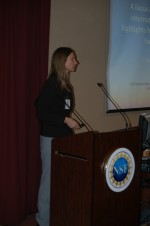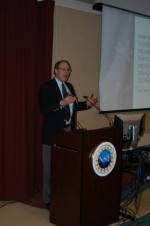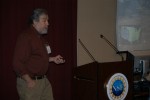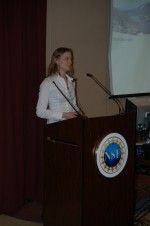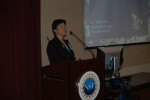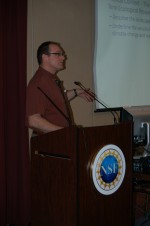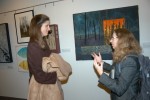The 2013 LTER mini-symposium held February 28, 2013, at the National Science Foundation (NSF) headquarters in Arlington, VA, attracted an audience of more than 100. The annual mini-symposium brings together a community of LTER scientists and educators to share with federal agency peers and policy makers the current status and future of long-term ecological research. It generally focuses on a single theme drawn from current or emerging ecological issues of interest to the public or to the ecological science community and based on research at the various LTER sites.
However, this year marks the 20th anniversary of the establishment of the International Long Term Ecological Research Network (ILTER), and the theme of this year’s forum, "The Globalization of Long Term Ecological Research," was a reflection of that milestone. The founding of the ILTER Network, an umbrella network of national LTER networks, grew out of a realization within the U.S.-LTER that it was not broad enough to effectively describe long-term ecological phenomenon in the context of global change. The ILTER Network contributes to the understanding of international socio-ecological issues through collaborative, site-based long term research projects and the comparison of data from a global network of sites.
NSF supported the growth of the ILTER through reciprocal visits of U.S. and international scientists and students, information management workshops, and cooperative research projects. Forty country networks now belong to the ILTER, and offer a wealth of opportunities for the U.S. LTER community. U.S. LTER scientists and graduate students extend their research internationally through collaborations at sites throughout the world. Data synthesis efforts address global questions by using long-term data collected at diverse ILTER sites. K-12 students acquire international connections through partnerships with Schoolyard Programs in countries outside the U.S.
To highlight the interactions of US LTER with other members of the ILTER, the forum invited speakers with research, information management, and education connections with ILTER to discuss their work. Kristin Vanderbilt (SEV) gave an overview of the ILTER Network, while Mark Williams (NWT), Tiffany Troxler (FCE), and Megan Woltz (KBS), individually discussed research they are undertaking with ILTER collaborators. Byron Adams (MCM) described a collaborative effort with ILTER scientists and others to harmonize measurements and data management at McMurdo Dry Valleys; John Porter (VCR) focused on collaborative activities with ILTER information managers to make long-term data globally accessible and discoverable; and Saleit Ron, from LTER Israel, discussed a “Schoolyard”-type program that was initiated in Israel, and is now being adopted by teachers in Oregon in collaboration with the Schoolyard program at the Andrews LTER.

 Enlarge this image
Enlarge this image